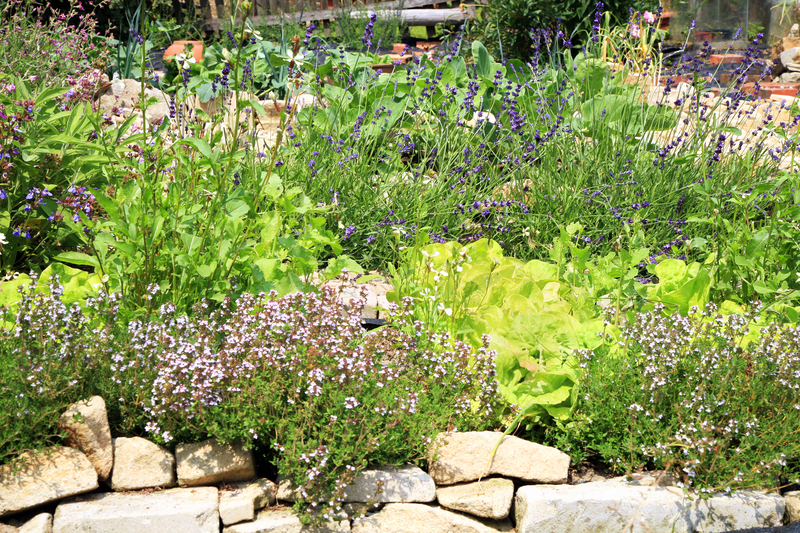Comprehensive Garden Maintenance in Shepherds Bush
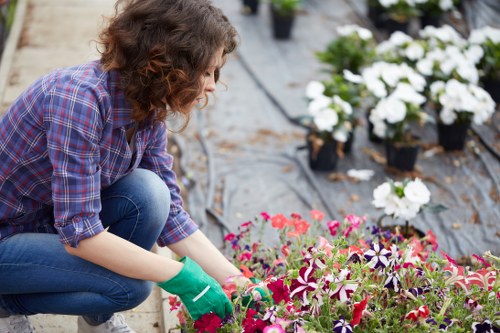
Maintaining a beautiful garden in Shepherds Bush requires dedication, knowledge, and the right resources. Whether you're a seasoned gardener or just starting out, understanding the unique challenges and opportunities presented by this vibrant area can help you achieve the garden of your dreams.
Shepherds Bush offers a diverse range of plant species that thrive in its climate. However, to keep your garden looking its best year-round, regular maintenance is essential. From seasonal planting to pest control, there's a lot to consider.
One of the first steps in effective garden maintenance Shepherds Bush is understanding the local climate and soil conditions. This knowledge will guide your planting choices and maintenance routines, ensuring that your garden remains healthy and resilient.
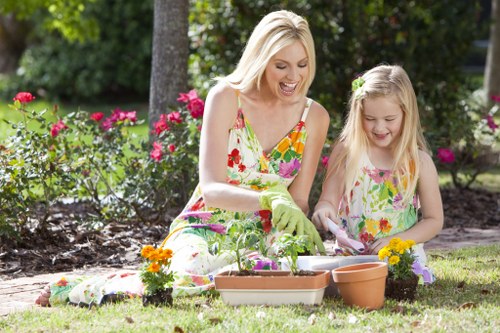
Seasonal Garden Tasks
Different seasons bring different tasks for your garden. In Shepherds Bush, spring is the time to plant new flowers and vegetables. Summer requires diligent watering and weeding, while autumn focuses on preparing your garden for the colder months. Winter maintenance includes protecting plants from frost and planning for the next growing season.
Pruning is another critical task that varies with the seasons. Proper pruning techniques can encourage healthy growth and improve the overall appearance of your plants.
Mulching is an effective way to conserve moisture and suppress weeds, especially during the warmer months. In Shepherds Bush, choosing the right type of mulch can make a significant difference in your garden's health.
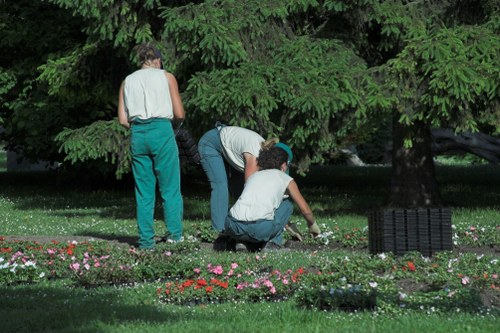
Pest and Disease Management
Gardens in Shepherds Bush are susceptible to various pests and diseases. Identifying and controlling these issues early can prevent them from spreading and causing significant damage. Integrated Pest Management (IPM) is a holistic approach that combines biological, cultural, and chemical methods to manage pests effectively.
Encouraging beneficial insects, such as ladybugs and lacewings, can naturally reduce pest populations. Additionally, maintaining healthy soil and plant diversity can make your garden more resilient against diseases.
Regular monitoring and swift action are key to successful pest and disease management. Keeping your garden clean and removing affected plant parts can help minimize problems.
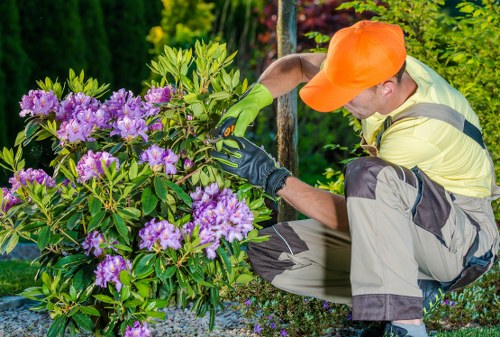
Soil Health and Fertilization
Healthy soil is the foundation of a thriving garden. In Shepherds Bush, soil quality can vary, so conducting regular soil tests is important to determine nutrient levels and pH balance. Based on the results, you can amend the soil with organic matter, compost, or specific fertilizers to improve its structure and fertility.
Using organic fertilizers promotes sustainable gardening practices and enhances soil biodiversity. Additionally, crop rotation and cover cropping can prevent nutrient depletion and reduce the risk of pests and diseases.
Mulching also plays a role in maintaining soil health by protecting it from erosion, retaining moisture, and adding organic matter as it breaks down.
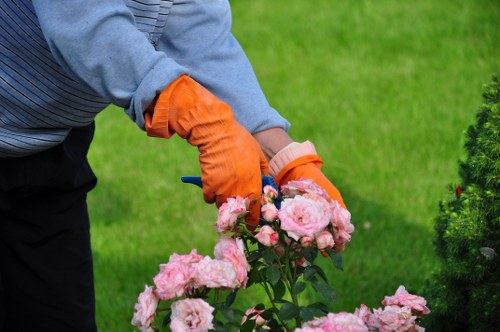
Garden Tools and Equipment
Having the right garden tools is essential for effective garden maintenance Shepherds Bush. From basic tools like spades and rakes to specialized equipment such as pruners and watering systems, investing in quality tools can make your gardening tasks easier and more efficient.
Regular maintenance of your tools, including cleaning and sharpening, ensures they remain in good working condition and last longer.
For larger gardens, consider investing in power tools like lawn mowers and hedge trimmers to save time and effort.

Watering Techniques
Proper watering is crucial for maintaining a healthy garden in Shepherds Bush. Overwatering can lead to root rot and other issues, while underwatering can stress plants and inhibit growth. Implementing efficient watering techniques, such as drip irrigation or soaker hoses, can help ensure that your plants receive the right amount of moisture.
Watering early in the morning or late in the evening reduces evaporation and ensures that water reaches the roots effectively.
Using rain barrels to collect rainwater is an environmentally friendly way to water your garden while conserving resources.

Plant Selection and Arrangement
Choosing the right plants for your Shepherds Bush garden is vital for success. Consider factors such as light exposure, soil type, and water requirements when selecting plants. Additionally, arranging plants in a way that complements their growth habits and bloom times can create a visually appealing and harmonious garden.
Incorporating a mix of perennials, annuals, shrubs, and trees can add diversity and texture to your garden. Native plants are often a good choice as they are well-adapted to the local climate and require less maintenance.
Designing your garden with focal points, pathways, and seating areas can enhance its functionality and aesthetic appeal.

Pruning and Trimming
Regular pruning and trimming are essential for maintaining the shape and health of your garden plants. In Shepherds Bush, understanding the specific pruning needs of each plant species ensures that you promote healthy growth and prevent disease.
Deadheading flowers encourages more blooms and keeps plants looking tidy. Thinning out dense growth improves air circulation and reduces the risk of pest infestations.
Using the right tools and techniques is important to avoid damaging your plants during pruning.

Lawn Care
A well-maintained lawn can be the centerpiece of your Shepherds Bush garden. Regular mowing, aeration, and fertilization are key components of effective lawn care. Choosing the right grass species for the local climate and soil conditions can result in a lush, green lawn that enhances the overall appeal of your garden.
Addressing common lawn problems, such as weeds and pests, promptly ensures that your lawn remains healthy and free from damage.
Implementing sustainable practices, like reducing water usage and minimizing chemical inputs, contributes to a healthier environment and a more resilient lawn.

Garden Planning and Design
Thoughtful garden planning and design can make maintenance easier and enhance the beauty of your Shepherds Bush garden. Consider factors such as plant height, color schemes, and seasonal interests when designing your garden layout. Creating zones for different activities, such as dining, relaxation, and gardening, can improve the functionality of your outdoor space.
Incorporating hardscaping elements like paths, patios, and garden beds adds structure and definition to your garden.
Using raised beds and vertical gardening techniques maximizes space and can make maintenance tasks more manageable.

Composting and Recycling
Composting is an excellent way to recycle garden waste and create nutrient-rich soil for your plants. In Shepherds Bush, setting up a compost bin or pile allows you to turn kitchen scraps and garden debris into valuable compost that enhances soil fertility and structure.
Maintaining a balanced compost pile, with the right mix of green and brown materials, ensures efficient decomposition and reduces unpleasant odors.
Using compost in your garden improves plant health, reduces the need for chemical fertilizers, and supports sustainable gardening practices.

Water Features and Irrigation
Incorporating water features, such as ponds or fountains, can add a soothing element to your Shepherds Bush garden. Proper maintenance of these features ensures they remain clean and functional, contributing to the overall ambiance of your outdoor space.
Efficient irrigation systems, like drip irrigation or automated timers, can help conserve water and ensure that your plants receive consistent moisture.
Regularly checking and adjusting your irrigation system prevents overwatering and under-watering, promoting healthy plant growth.

Lighting and Accessibility
Outdoor lighting enhances the beauty and safety of your garden, allowing you to enjoy it even after dark. In Shepherds Bush, strategically placed lights can highlight key features, illuminate pathways, and provide security.
Choosing energy-efficient lighting options, such as solar-powered fixtures or LED bulbs, reduces energy consumption and lowers utility costs.
Ensuring that your garden is accessible, with well-maintained paths and clear spaces, makes maintenance easier and creates a more inviting environment.

Sustainable Gardening Practices
Adopting sustainable gardening practices in Shepherds Bush contributes to environmental conservation and enhances the health of your garden. Practices such as rainwater harvesting, using organic fertilizers, and promoting biodiversity support a thriving and resilient garden ecosystem.
Reducing chemical pesticide and fertilizer use minimizes your garden's impact on the surrounding environment and protects beneficial insects and wildlife.
Implementing permaculture principles, such as companion planting and natural pest control, can create a self-sustaining and low-maintenance garden.

Conclusion
Garden maintenance Shepherds Bush involves a combination of planning, regular care, and sustainable practices. By understanding the specific needs of your garden and implementing effective maintenance strategies, you can create a beautiful and healthy outdoor space that enhances your home's appeal and provides a sanctuary for relaxation and enjoyment.
Investing time and effort into your garden not only improves its aesthetic value but also contributes to your overall well-being and the environment. Embrace the joys of gardening in Shepherds Bush and watch your garden flourish throughout the seasons.
